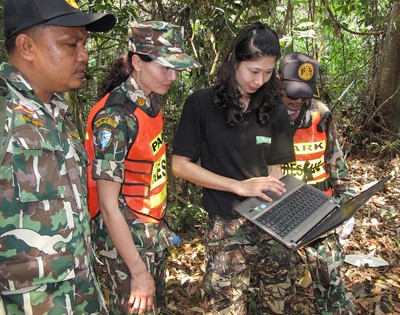Speeches Shim

The United States has a government-wide strategy to combat wildlife trafficking to protect endangered species such as elephants, pangolins, rhinos, sharks, tigers, tuna and turtles. The U.S. Agency for International Development (USAID) has been actively working to stop the illegal trade in wildlife in Asia since 2005 when the Association of Southeast Asian Nations Wildlife Enforcement Network (ASEAN-WEN) was created. USAID has built on ASEAN-WEN's successes and is sharing its lessons with China and South Asia through Asia’s Regional Response to Endangered Species Trafficking program. The program addresses trafficking in illegal wildlife in Asia by reducing consumer demand, strengthening law enforcement and improving regional cooperation and anti-trafficking networks.
The program unites the efforts of the 10 ASEAN member states, the ASEAN-WEN, China and South Asia, non-governmental organizations and private sector organizations. Together, these organizations are helping Asia respond to the challenge of protecting unique wildlife and natural resources. To date, the network has shown impressive results which include: more than 8,500 officials trained in anti-poaching operations and wildlife crime investigations; a ten-fold increase in arrests and seizures of illegal wildlife since 2009; a fully functioning secretariat set up in Bangkok; and a national task force to combat wildlife crime formed in almost every ASEAN country.
REDUCING CONSUMER DEMAND
The program uses extensive media and advertising resources to support campaigns in China, Thailand and Vietnam to help reduce the consumption of protected wildlife. Additionally, the program assesses the results of the campaigns to determine how to best effect changes in people’s behavior regarding consumption of wildlife products.
STRENGTHENING LAW ENFORCEMENT
The program works with the region’s law enforcement trainers and institutions to improve regional and national courses and materials covering the latest techniques to prevent wildlife crimes from occurring as well as improved detection and prosecution tactics. Regional law enforcement has put these skills into action, arresting several wildlife trafficking kingpins and regularly seizing animals and animal products.
PROMOTING REGIONAL COOPERATION
Regional program events include investigation meetings and training courses through which officers from South Asia, China and Africa learn from each other and exchange information, intelligence and best practices. For example, in early 2014, USAID collaborated with the ASEAN-WEN, other U.S. agencies and 28 countries through Operation Cobra II, a month-long wildlife enforcement operation that resulted in 400 arrests and 350 major wildlife seizures across Asia and Africa.
PARTNERS
USAID partners with ASEAN-WEN, FREELAND Foundation, ASEAN Centre for Biodiversity, Animal Concerns Research and Education Society, AsiaWorks TV, Conservation International China Program, IFAW China, WildAid, Education for Nature Vietnam, Freeland Trust of India, INTERPOL, JWT, National Geographic, Beijing National University, Wildlife Alliance, the U.S. Department of State, the U.S. Department of Justice, the U.S. Fish and Wildlife Service and the U.S. Forest Service.
Click here for the pdf version.

Comment
Make a general inquiry or suggest an improvement.